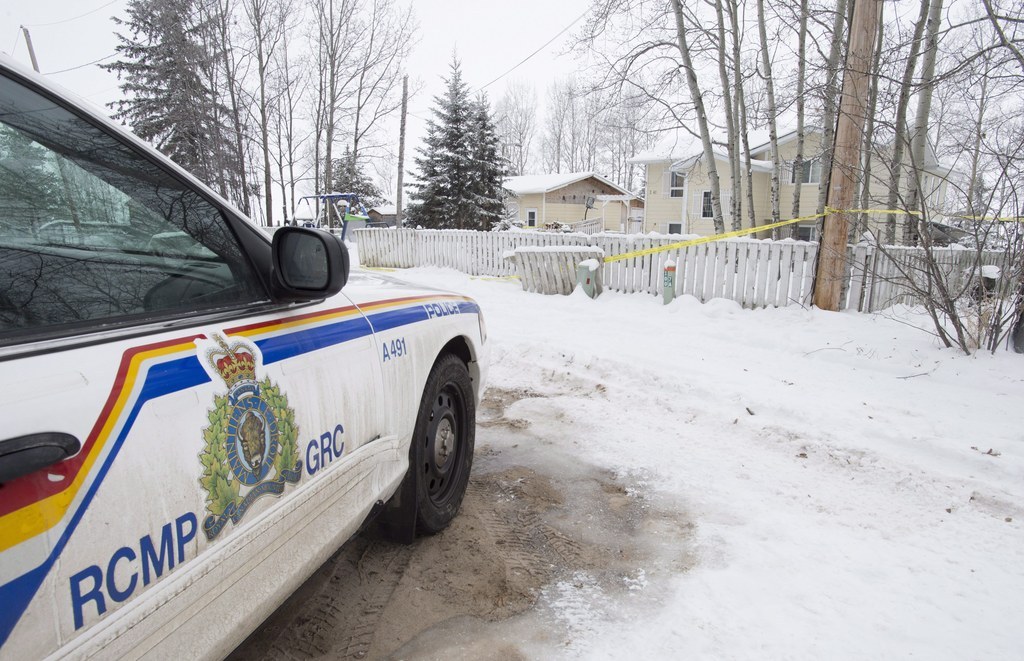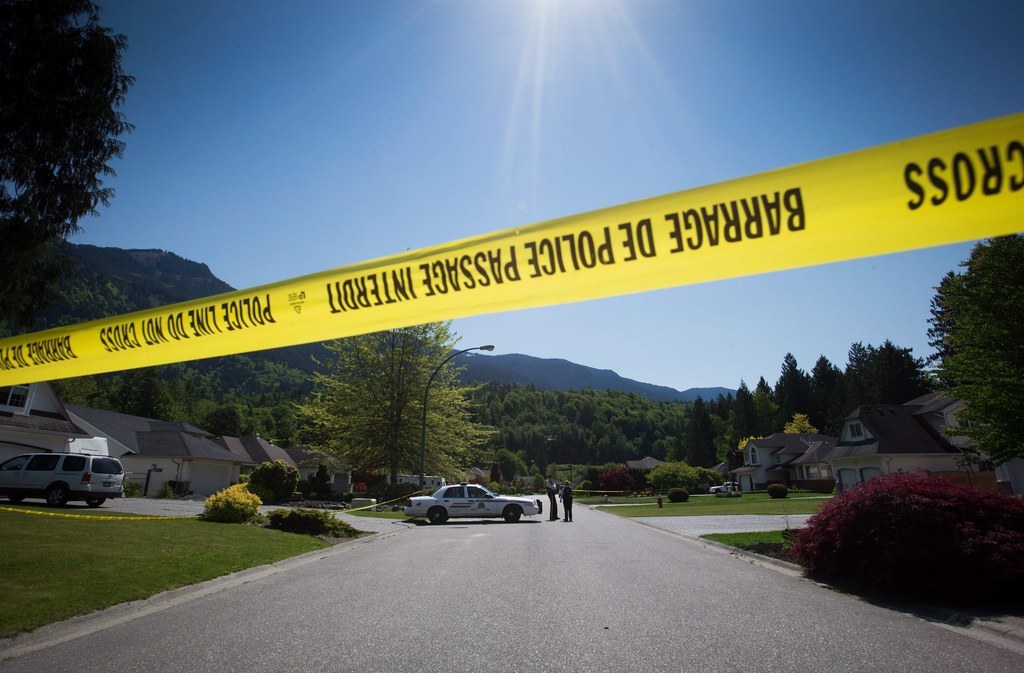An RCMP officer lied about children being in danger in order to illegally enter a home, documents obtained by BuzzFeed Canada show. The officer was caught and reprimanded, but the case became one of hundreds of internal investigations never made public.

RCMP Cst. Chris Kosmenko was trying to arrest a teenage boy when he showed up at the Wood family household in Yellowknife. The boy had gotten into a fight at school, breaching his bail condition to keep the peace and be on good behaviour.
When Kosmenko arrived, the evening of Saturday, March 8, 2003, the boy's father said his son was away for the weekend and offered to bring him in on Monday.
But Kosmenko told the man he must produce his son "right then and there," and threatened to arrest him with obstruction or disturbing the peace if he did not.
An argument followed and eventually the father left the premises to go to his store.
So Kosmenko found another way inside — by calling up social services and telling them there were unaccompanied children inside the house. The children, he said, could be in danger.
Two other officers on the scene did not stop him. One, a junior constable, told Kosmenko he had seen an adult inside the home. Kosmenko looked at him and said "No, you didn't."
When social services arrived and entered the house, the police entered with them. In fact, two adults were home. The teen was not.
"It is troubling that Constable Kosmenko could commit such an abuse of power without any intervention from his fellow RCMP members," the Civilian Review and Complaints Commission for the RCMP later wrote in a ruling that found Kosmenko knowingly gave false information to social services.
Kosmenko was also rapped for threatening to falsely arrest the boy's father.
But like hundreds of other cases, the ruling did not meet the bar for being made public. When BuzzFeed Canada asked for a copy, the request was denied. (The details above come from a copy of the commission's investigation report obtained independently.)
"How could they think it was not in the public interest to make this public?" said lawyer Tom Engel, the lawyer who represented the family.
"This was serious and there should have been criminal charges."
The Kosmenko file was just one thousands of public RCMP complaints not made public. The RCMP complaints commission gets approximately 2,000 cases each year. But on average, only three are made public.

The commission will release an investigation publicly if it is deemed to be an issue in the public interest. These could range from the death of someone in custody to their investigation into workplace harassment.
"The only time we actually make them public is when the issue that was the subject of the complaint was in the public domain already and the chair himself initiates what is called a public interest investigation," said commission spokesman Tim Cogan.
No public interest investigation has been released since 2013, though a handful are ongoing.
The rest, like the Kosmenko case, are never released.
"The people in the communities where these officers are have a right to know about the misconduct and the way the RCMP handled it," said Tom Engel, the lawyer from the Kosmenko case.
"Those accused of crimes where this officer is involved need to know about his dishonesty."
BuzzFeed Canada has since found two unrelated cases around of improper behaviour involving Kosmenko in Yellowknife.
In one case, Kosmenko forced his way into a home without a warrant or permission. A woman at the door told him to leave in the Aboriginal language of Dogrib. She was removed from her home so police could enter.
Kosmenko would later tell a judge he thought he had permission to enter because the woman didn't shut the door.
Another case involved a man arrested on suspicion of drunk driving who was trying to contact a lawyer. Kosmenko told the man — wrongly — that it was illegal for a lawyer to advise him against taking a breathalyzer test. A judge would later describe this as inaccurate, inappropriate, and an improper interference in the man's right to counsel.
In all three cases involving Kosmenko, the people he was dealing with were Aboriginal. Kosmenko is still an RCMP officer and now works in Calgary.

Reached via phone, Kosmenko told BuzzFeed Canada that he wasn't allowed to comment because of RCMP communication rules.
"That's something, unfortunately, that I'm not going to be able to speak to without the proper authorization," he said.
Repeated requests for comment were sent to the RCMP over two weeks. No questions were answered.
Sometimes, the commission releases glimpses of its investigations through its annual report to Parliament.
For example, we know that last year an officer arrested a drunk woman so forcefully she was left with bruises, scrapes and a chipped tooth. The officer claimed she was a danger to herself and others, but the commission found there was no evidence of this.
There's an obvious problem if that information is being kept secret... In a court's decision to exclude evidence or not, one of the factors they look at is is there a systemic problem? Is it a rogue officer or a feature of bad training?
In another case, a shareholder alleged fraud at his company and an executive was convicted. But it turned out the shareholder had offered a job to the RCMP officer that conducted the investigation. The conviction was overturned and the commission found the officer breached the RCMP's conflict of interest policy, conducted an insufficient investigation, and behaved unprofessionally during the trial.
In a year when carding of black drivers became a national topic of discussion, the annual report only makes one mention of the issue — an officer making a U-turn to pull over a visible minority driver who was driving the speed limit. The officer's actions were found to be reasonable because "there was no indication it was racially motivated."
In each of these cases we do not know the names of the officers involved or where they occurred.
Other police forces are more transparent. In Ontario the OPP and every municipal force are overseen by the Office of the Independent Police Review Director. When the director rules against the police, the ruling is released to the public.

Of the approximately 2,000 complaints made against the RCMP each year, nine out of every ten cases are resolved informally, a commission spokesman told BuzzFeed Canada.
For the rest, the commission completes a full investigation and offers a ruling. The commission determines whether the case was appropriately handled by the RCMP.
Of the 200 or so times per year the commission releases rulings, it finds that the RCMP handled the issue appropriately about 80% of the time, according to internal numbers. The remaining cases — about 40 times per year — they rule against the RCMP and order further action.
From 2007 to 2013 the commission made only three complaints per year public on average.
"There's an obvious problem if that information is being kept secret," said Michael Spratt, a defence lawyer at Abergel Goldstein and Partners in Ottawa.
Part of the problem, said Spratt, is that the lack of disclosure covers up widespread, systemic problems.
"In a court's decision to exclude evidence or not, one of the factors they look at is is there a systemic problem? Is it a rogue officer or a feature of bad training?"
If an officer's past discipline history could have a direct impact on a case, prosecutors are supposed to reveal that history to the defence in what's called a McNeil disclosure, after the Supreme Court ruling of the same name.
But even then, only concluded hearings where the officer was found guilty of wrongdoing are disclosed. Things like complaints or dismissed cases are not.
"There's a lot of material that falls through the cracks and isn't disclosed," said Spratt.

In the Kosmenko case, it appears that the only discipline levelled was that he was told to apologize to the family.
Even then, he didn't have to make the apology himself.
"In the event that Constable Kosmenko is unable or unwilling to apologize, I will ask the Commanding Officer, 'G' Division, to apologize on behalf of the RCMP," wrote then-commissioner of the force Giuliano Zaccardelli.
The Wood family eventually launched a lawsuit against the RCMP in 2005. Along with the illegal entry of their home, they also alleged the RCMP repeatedly harassed their son. The teen was tried three separate times where the charges were ultimately dismissed or dropped.
The family was seeking $147,000 in damages. According to public accounts documents, the RCMP paid out $24,000 to the Wood family last year for a malicious prosecution.
